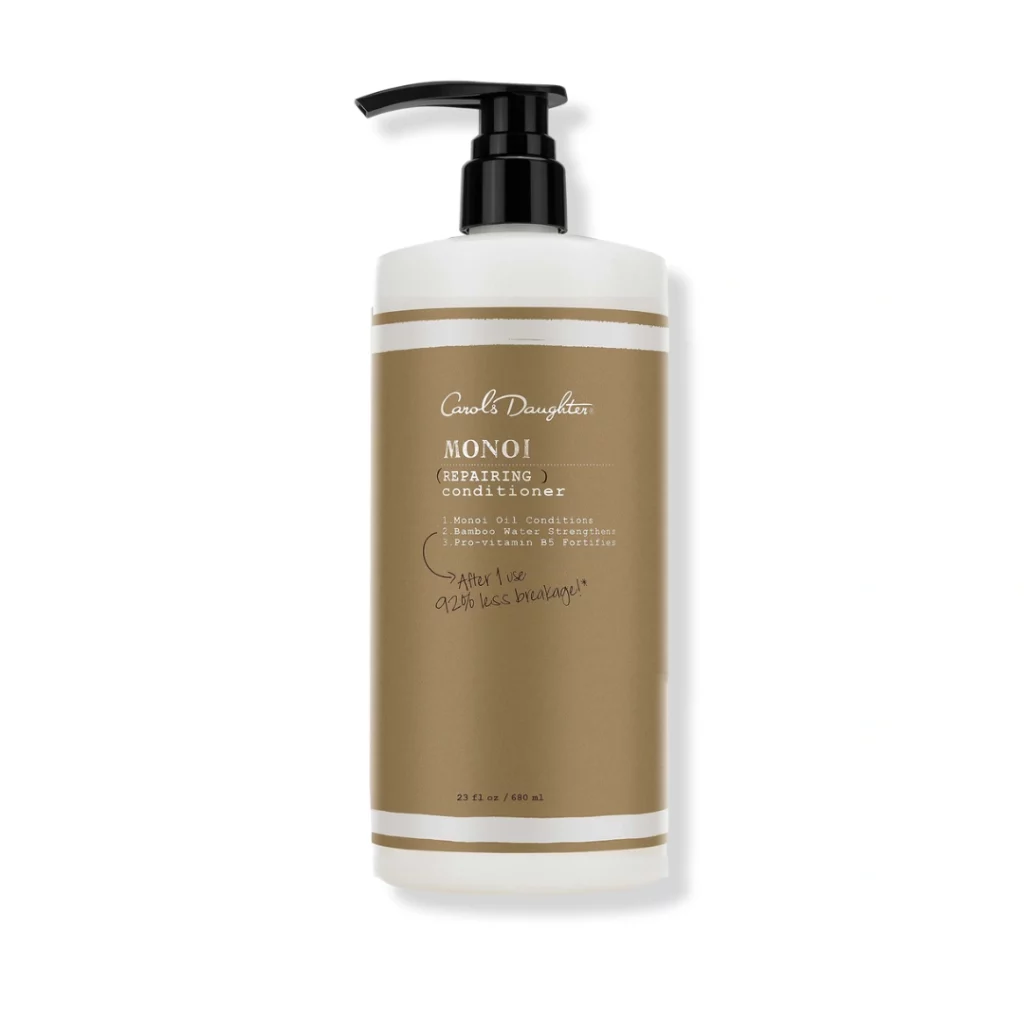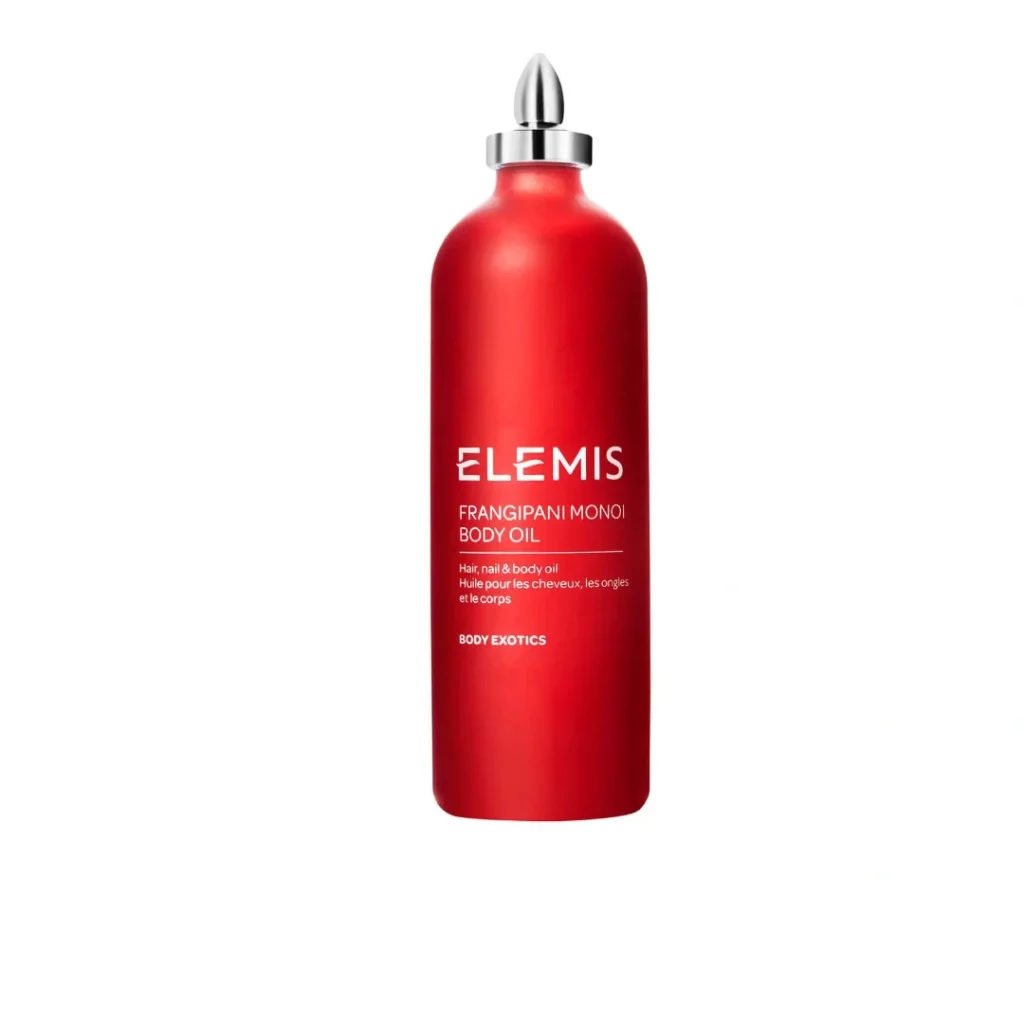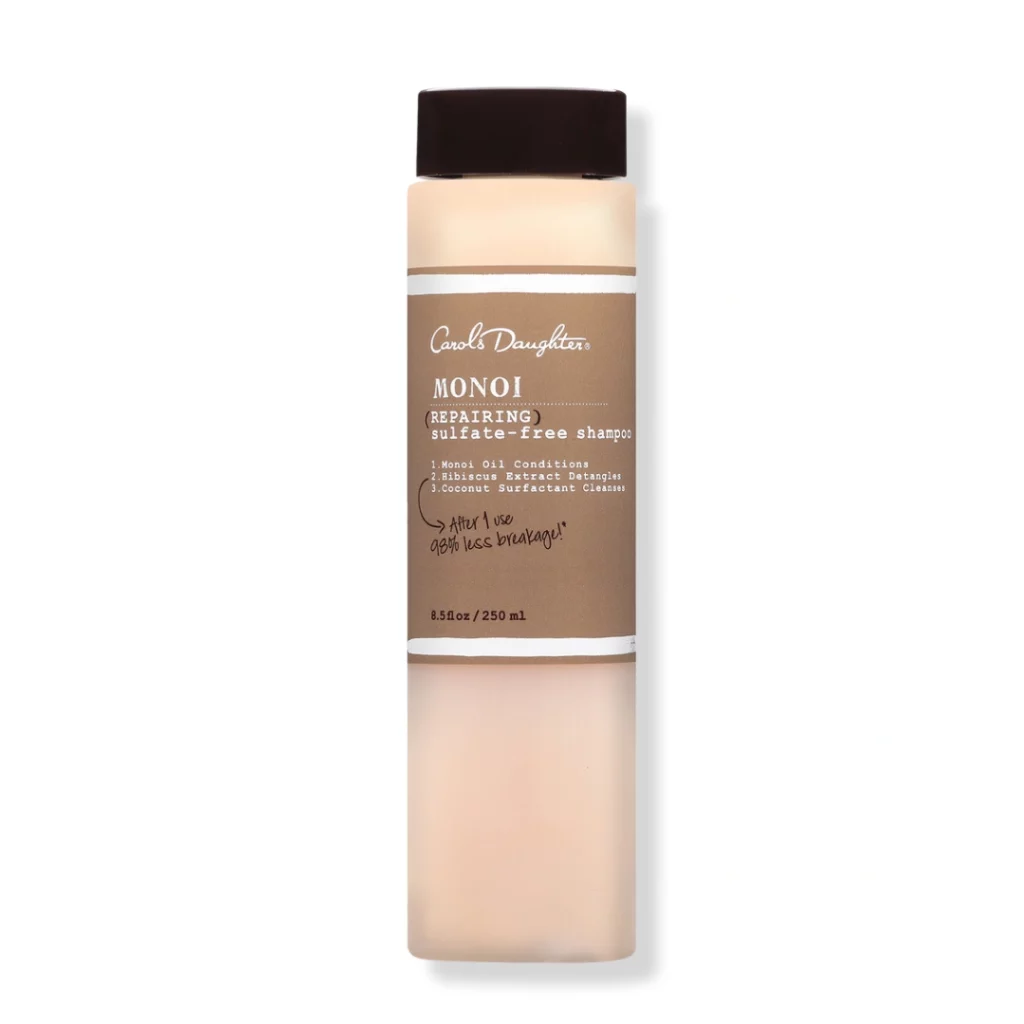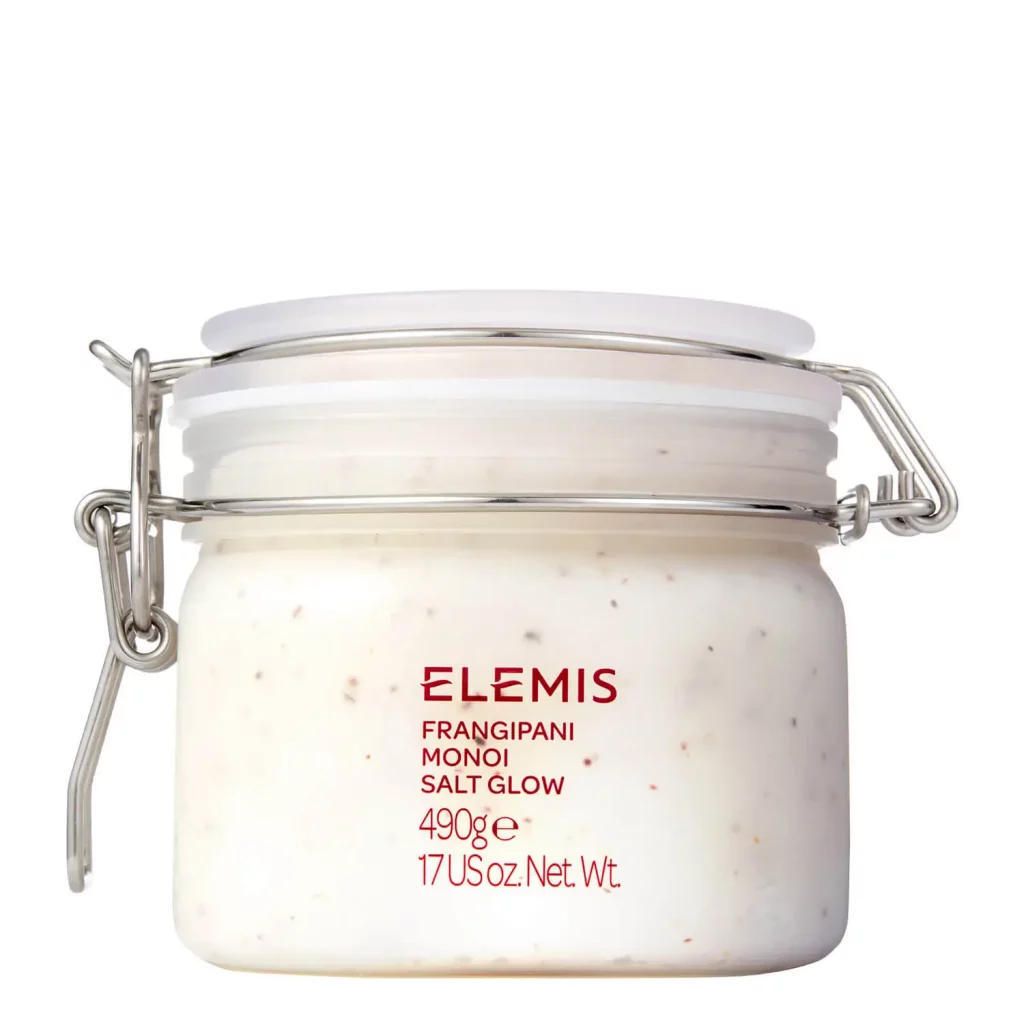PHOTO: skincare rx // ELEMIS FRANGIPANI MONOI BODY OIL
This article contains affiliate links. We may earn a commission when you buy something through those links.
Known also as the Tahitian gardenia, the Tiaré flower’s petals are soaked in pure coconut oil to make monoi oil, an infused oil. French Polynesia is the original home of the flower and oil. For many years, Polynesians rubbed the oil into their skin and hair to hydrate them, to anoint infants, to cleanse objects, and to moisten them. The exquisite scent of monoi oil and its numerous skin and hair care advantages are now among its greatest attributes. Find out more about this useful oil by reading on.
It is used to hydrate, nourish, and add shine to hair and is regarded as a perfume oil due to its scent. The majority of the advantages come from coconut oil. For example, coconut oil’s moisturizing properties from healthy omega-3 fatty acids and vitamin E, its deep hydration, which can help repair damaged hair, and its strength and nourishment, which can enhance general scalp health, are just a few of the many advantages it has for hair and skin.
QUICK FACTS
MONOI OIL
INGREDIENT TYPE: Hydrator
PRIMARY BENEFITS: lessens frizz, replenishes moisture in the scalp, and keeps hair healthy
WHO SHOULD USE IT: All hair types can use monoi oil without harm, however those with damaged hair may benefit from it the most. You should also be aware that monoi oil has a scent.
HOW FREQUENTLY CAN YOU USE IT: Use it only a few times a week on moist hair.
COMPATIBLE WITH: Hyaluronic acid can draw in and hold onto moisture, improving hydration when applied before monoi oil.
AVOID USING WITH: To prevent irritation, it is preferable to stay away from other scented items or oils.
How is monoi produced?
Making genuine monoi oil involves following a rather precise procedure. It is not real if it is not done in this manner or is not sourced correctly. To make it, the tiare or gardenia flower buds must be carefully hand-picked while they are still closed. Within 24 hours of being picked, they must be used. The plant’s blossom section is immersed in refined coconut oil and allowed to infuse for at least 15 days. For every liter of coconut oil that is used to soak the tiare blossoms, there is an unique rule that must be followed when harvesting and manufacturing monoi oil.
What Are the Benefits of Monoi Oil?
Due to being a modified form of coconut oil, the advantages of monoi oil are extremely comparable to those of the latter.
Monoi oil is frequently used by people who have dandruff, dry skin, acne, psoriasis, eczema, split ends, frizzy hair, sunburn, skin discoloration, wrinkles, blemishes, age spots, hair loss, a weakened immune system, oxidative stress, and other inflammatory disorders.
1. Restores moisture: According to studies, coconut oil enters the hair shaft, providing stronger defense against hygral fatigue damage. The function of coconut oil is the same in monoi oil, and utilizing monoi oil may help replenish nutrients and moisture while strengthening the hair shaft.
2. Reduces frizz: Less frizz and more shine are the results of monoi oil’s moisturizing properties. Although a little goes a long way, it can give your hair a healthy sheen.
3. Promotes general hair health: The pollutant barrier that monoi oil provides for the hair can aid to support healthy hair. It supports a healthy, moisturized scalp and strands by fortifying and nourishing the hair.
4. Has anti-aging properties: One of the most popular and effective alternative remedies is coconut oil, which has a lot of antioxidant characteristics. The properties of lauric acid, which can find free radicals and neutralize them before they can produce oxidative stress, are also advantageous when using monoi oil topically. As a result, you may see fewer wrinkles, feel better about your skin, and even experience a decreased risk of developing skin cancer.
5. Soothes Sunburn: While spending time in the sun is a natural part of life, it’s important to protect your skin from UV rays. Research has revealed that this oil can partially block certain UV rays from permeating the skin, thus it shouldn’t be completely relied upon as a sunscreen. If you do get a sunburn, you can apply monoi oil to reduce pain, inflammation, and swelling while hastening the burn’s recovery.
6. Moisturizes Skin: Monoi oil is widely used as a full-body moisturizer in French Polynesia, where people frequently coat themselves in it before to sailing or scuba diving. An essential health benefit for those who wish to keep their skin moisturized and nourished all day long is that this will assist their bodies in retaining moisture even when exposed to salt water, wind, and the harsh sun.
7. Decreases inflammation: The methyl salicylate present in monoi oil can assist in removing many of the underlying causes of the numerous health issues that might result in irritation on the skin or scalp. This oil can relieve the discomfort of those disorders, including psoriasis, eczema, and acne, while also preventing further inflammation because of its soothing and hydrating properties.
Hair Type Considerations
A hair oil, such as monoi oil, will normally be most beneficial to hair that is dry and malnourished. You may use monoi oil in two different ways: as an oil therapy when you’re attempting to rehydrate your skin, and as a scalp treatment if you have dry, itchy scalp, which is common in the winter. The same as with coconut oil, monoi oil can be used on its own.
Despite the fact that monoi oil is generally safe for most hair types, it’s crucial to remember that some hair types should avoid using it. Those with sensitive skin, as many individuals with sensitive skin can experience sensitivities to fragrance. Being an oil, it could exacerbate skin diseases including seborrheic dermatitis, dandruff, or folliculitis, which causes scalp outbreaks. More research is need to validate its impact on the health of the skin and hair, even though its effects are thought to be comparable to those of coconut oil. Consult a physician or dermatologist before usage, as with any other skin- or hair-care item. Stop using the product right once if you start to feel any negative effects.
How to Apply Monoi Oil to Hair
Although monoi oil is scented, it is generally harmless. In some skin types, prolonged or consistent use may eventually result in allergic responses. Use it only once or twice a week on moist hair. Peeling, dry, itchy, and red skin are signs of delayed allergic reactions.
Understanding application is the key to having beautiful, moisturized hair once you’ve patch-tested monoi oil and proven it works for you. Application to the hair root should be avoided whenever possible. Since our scalps naturally create oil, it is recommended to apply hair oils to the ends of the hair shaft. Oils on the scalp can aggravate skin disorders including folliculitis and seborrheic dermatitis. Apply it to damp hair. It works best when applied following cleaning and shampooing. For overnight hydration, applying at night is frequently the best option.
For Specific Treatments
1. is a hot oil treatment. Spend three to four minutes soaking your oil tube or container in hot water. From the roots to the ends, brush in the oil and leave on for at least 15 minutes. wash, moisturize, and style. You should do this twice a month or whenever you need to hydrate thoroughly.
2. A scalp treatment is the next recommended application. Apply monoi oil to the scalp for scalp treatments, mildly steam the scalp for five minutes, and then rinse with cold water.
Side Effects of Monoi Oil
Although there aren’t many adverse effects related to monoi oil, some users have complained of skin inflammation and digestive problems. For internal use, coconut oil is preferable than monoi oil because it is less expensive and has a milder scent. Before including monoi oil into your usual health regimen, pregnant women should also consult a doctor.
Skin Irritation – Due of the potent compounds in the gardenia flowers and the organic coconut oil, this oil may irritate or cause inflammation in those with sensitive skin. Before using this oil on a wider area of skin or your scalp, test it on a small patch of skin first to check for any adverse effects.
Stomach Problems – In the rare event that this oil is ingested internally, it may upset the stomach because the high methyl salicylate in the flower petals may result in inflammation. In general, this oil shouldn’t be ingested.
Pregnancy – It is typically advised against using this oil while pregnant due to the numerous strong adverse effects that could potentially be passed on to the fetus. Speaking with your doctor if you want to use monoi oil during your pregnancy is advised because consuming coconut oil is not completely prohibited during this time.
The Best Monoi Oil Hair Products
SHOP THE LOOK

Carol’s Daughter
Monoi Repairing Conditioner

ELEMIS FRANGIPANI MONOI BODY OIL 100ML

Carol’s Daughter
Monoi Repairing Sulfate-Free Shampoo

ELEMIS FRANGIPANI MONOI SALT GLOW 490G

